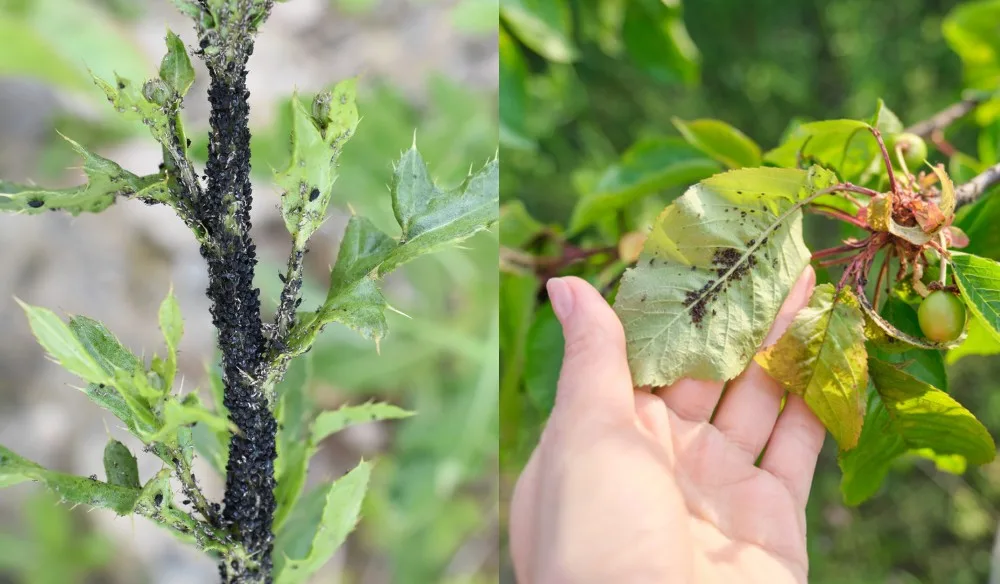
Gardening organically is often a process of trial and error. There are a range of pests that can become a problem, and organic pesticides are sometimes prescribed as a solution.
But it is important to remember that even when they are organic, pesticides might not be the right option.
So, let’s take a look at three of the options you could consider as the ‘nuclear option’.
We’ll then take a look at why even these organic options may not be the best idea, and what alternatives you could consider.
3 Organic Pesticide Recipes To Consider
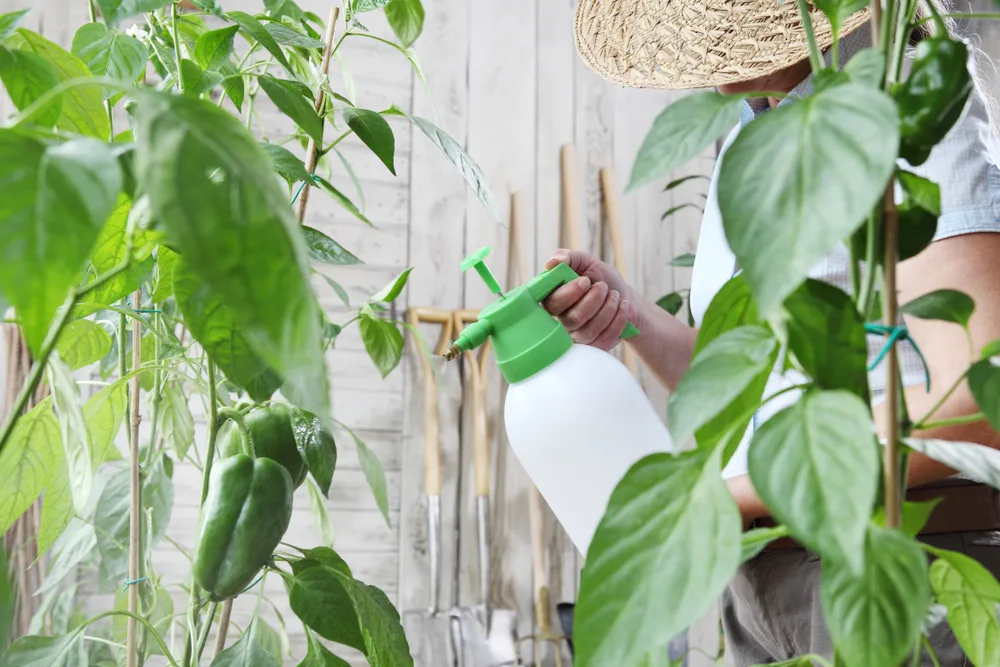
To begin with, let’s take a look at three common organic pesticides. Each of these three options works just as effectively as the harmful chemical pesticides on the market.
They are certainly preferable to these dangerous substances.
If you have a massive infestation, on plants that are precious to you, then taking this extreme measure and using a pesticide may be your only short-term option.
1. Garlic Pesticide
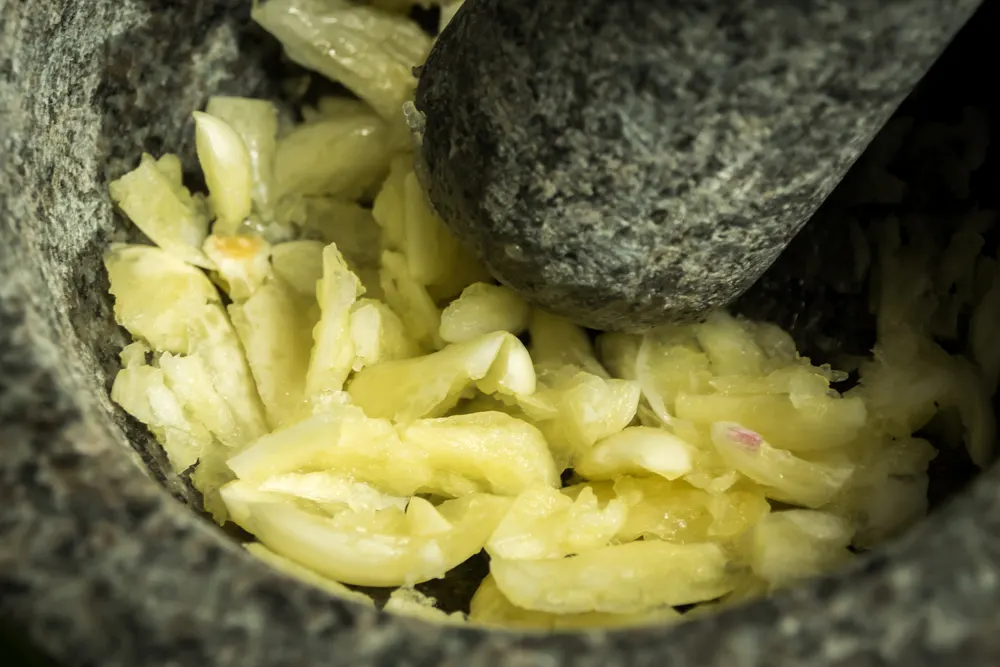
Garlic is a useful plant to grow – and not just for its applications in the kitchen.
It is broadly beneficial as a natural medicine and the reasons for this also make it a potent organic pesticide. It is high in sulphur compounds that will kill insects attacking your plants.
To make a garlic pesticide spray to use on your infested plants:
- Take a bulb of garlic, separate and peel the cloves.
- Crush the cloves into a fine pulp, or blend them.
- Mix this garlic pulp with around 4 cups of water. (Ideally rainwater rather than tap water.)
- Add a couple of tablespoons of a natural liquid soap. (Be careful to choose an organic, natural soap with a balanced pH.) The soap helps the spray stick to foliage, but also serves as a pesticide in its own right.
- Pour the mixture into a large jar or other lidded container, and leave the solution to steep overnight.
- Strain the mix (to stop pieces from blocking the nozzle when you try to spray it).
- Transfer the liquid into a spray bottle, and spray it directly onto the stems and leaves of infested plants within one week.
Note – this will kill all types of insects that come into contact with it. It is also important to note that the pungent spray will affect the flavor of your food crops.
If you do decide to use it, avoid using it less than a month before harvest time.
2. Neem Oil Organic Pesticide
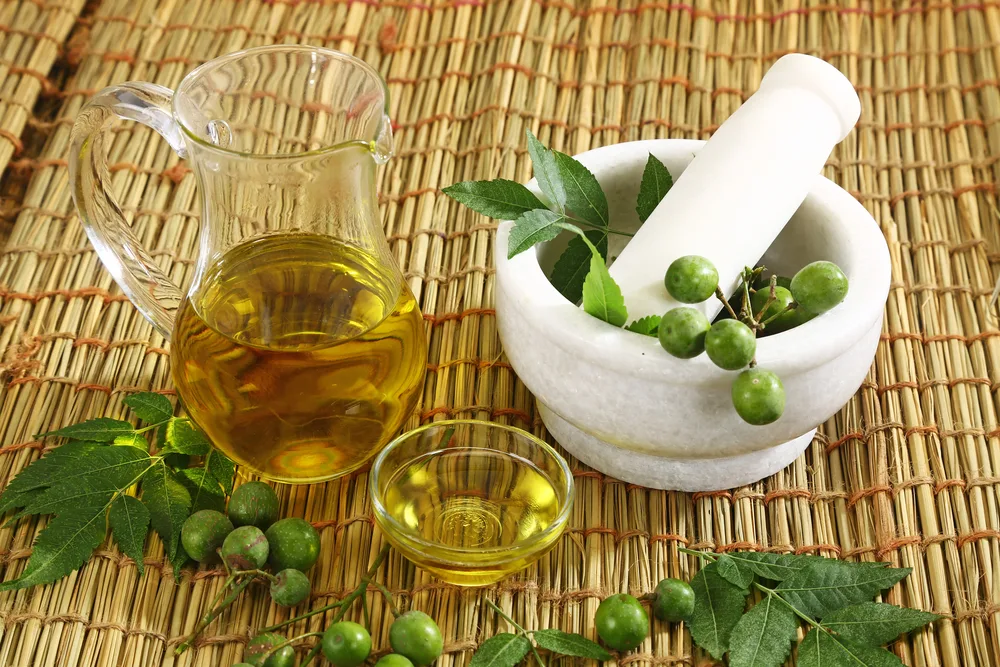
Neem oil, derived from the fruits and seeds of the neem tree, is a widely used biopesticide used in organic farming and gardening.
The extracts work by stopping insects from feeding, and by blocking an insect molting hormone.
It repels or kills a number of different pest species, but is not known to be harmful for a range of beneficial insects and other wildlife.
To make a neem oil pesticide spray:
- Take a teaspoon of pure, cold-pressed neem oil.
- Add to around 4 cups of warm water.
- Add ½ tsp of liquid soap (natural and neutral in pH, as above).
- Pour into a spray bottle and use the mixture on your infested plants.
While this will work well in dry conditions, this too is a pesticide that will stop working when washed away by rain. So after rain, or watering, it will also need to be re-applied.
3. Diatomaceous Earth
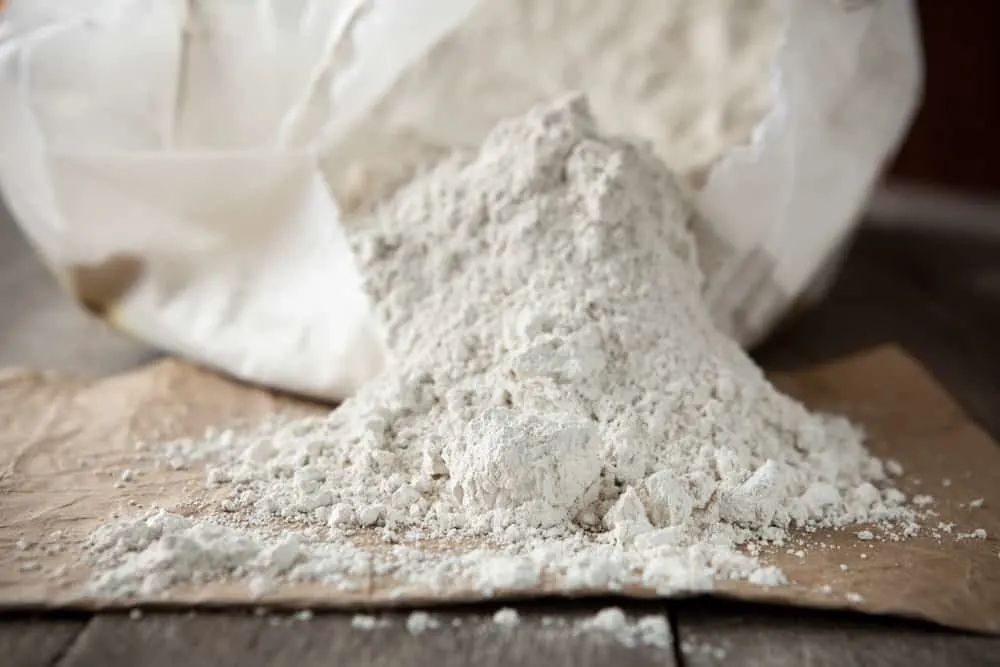
Diatomaceous earth is a powder that is made from the fossils of little aquatic organisms.
The fossils are rich in silica, and have razor sharp edges. These do not affect humans, but can cut and kill a range of small insect pests, including aphids.
By dusting this powder over and around your plants, you can deal with a number of different garden pests.
It is worth noting, however, that while it works when dry, this organic pesticide will become ineffectual after rain and will need to be re-applied.
Limited Efficacy – Epsom Salt Organic Pesticide
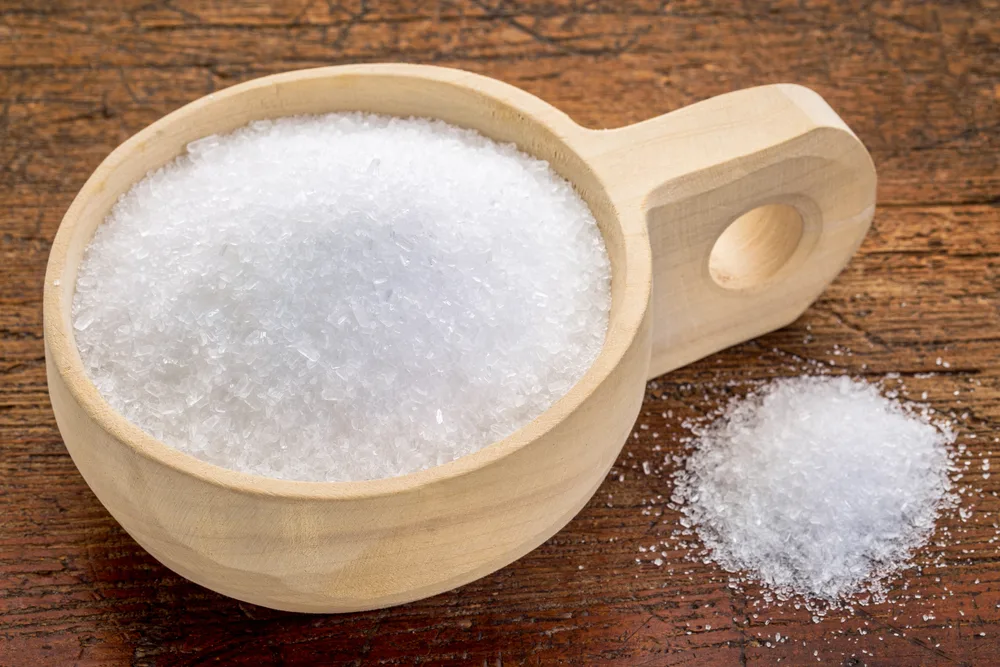
You can use Epsom salt in your garden in a range of different ways. One of the ways that you can use it is as a spray pesticide.
The magnesium-rich salts may help you to reduce a bug problem, while also aiding plant growth.
To make an Epsom salt pesticide spray:
- Take one cup of Epsom salts.
- Dissolve them in around 5 gallons of water.
- Spray the solution onto affected plants.
It is worth noting that while it can repel or even kill some insects, it is not a universal panacea.
There is no guarantee that it will work on your particular infestation and there is little real evidence to back up its efficacy.
Note also, an Epsom salt spray can damage a plant’s foliage, and excessive use can cause root damage too. So don’t use this organic insecticide too often, if you use it at all.
Limited Efficacy – Soap and Oil Spray
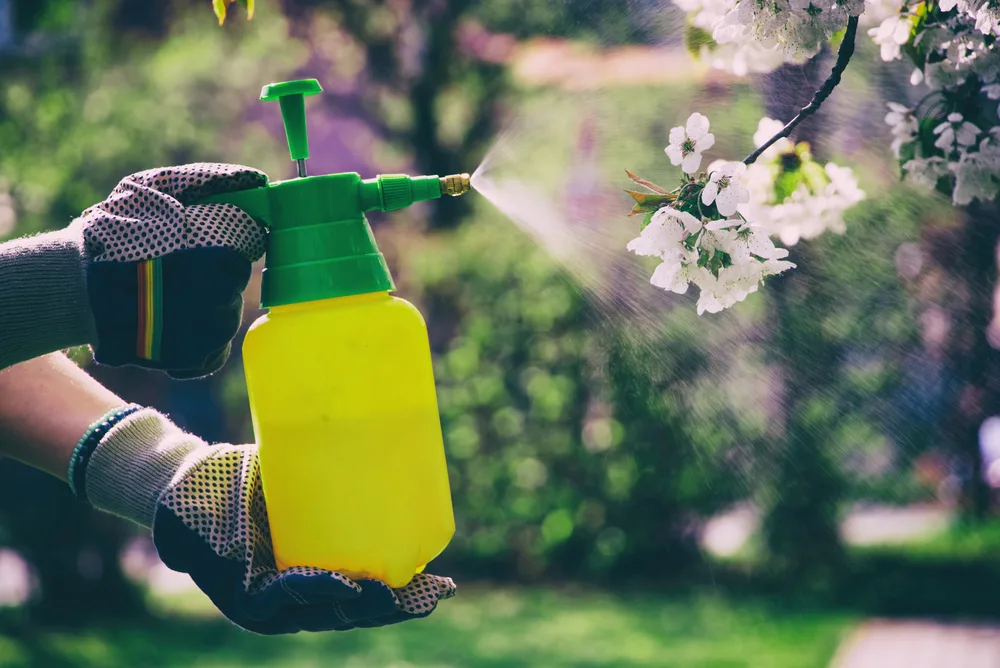
Mixing a natural soap with oil will create an emulsion that can be used to kill aphids and mites by coating them and suffocating them. To make this spray:
- Mix ¼ cup liquid soap with 1 cup of vegetable oil.
- Shake the mix well and it will turn white.
- You can store this concentrate for up to three months or so in a sealed container.
- To use the mixture, add 1 tablespoon of it to 4 cups of water, and spray directly onto the insects. Re-apply every week or so.
This can be effective for insects which are directly coated with the substance.
However, overall, it has limited efficacy simply due to the fact that it is difficult, if not impossible, to get the spray into every corner of the plants.
It is also only suitable for a certain small range of pest species.
Why Organic Pesticides Should Only Ever Be a Last Resort
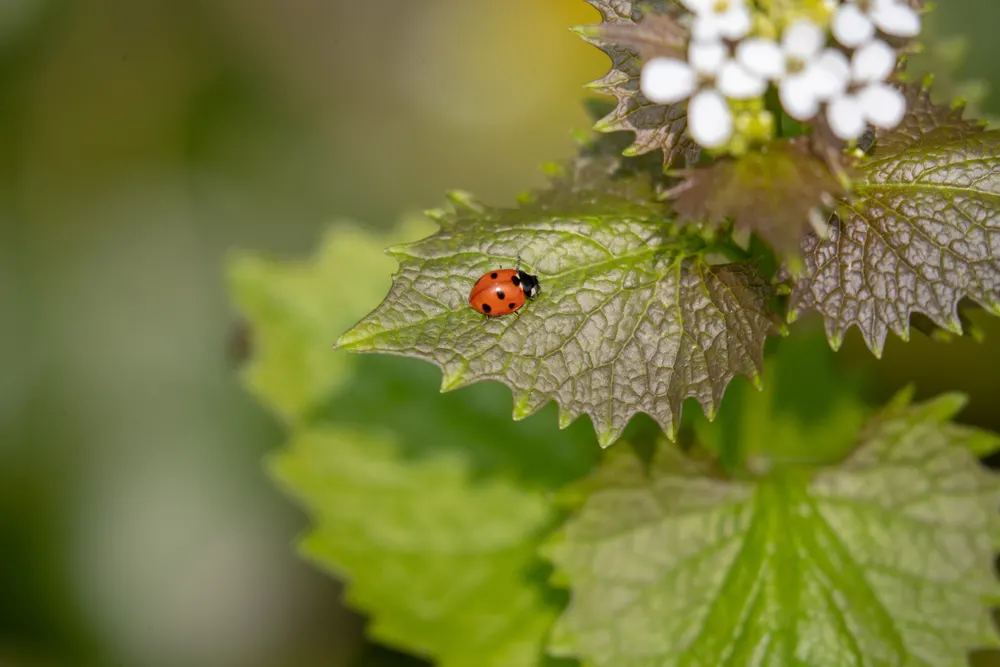
Just because something is ‘organic’, however that does not necessarily mean that it will help create a balanced and thriving garden ecosystem.
Even organic pesticides are designed to kill insects that are plaguing your plants.
Unfortunately, they do not usually only kill the insects that are a pest.
They also often kill other insects that come into contact with them. This includes those insects that prey on pest species and help to keep their numbers down.
In the longer term, therefore, using a pesticide of any kind – even organic – can actually make matters worse. If natural predation drops, pest numbers can increase.
You risk making an imbalance in the natural system even worse.
Organic gardening should be all about balance. You may lose the odd plant to pests.
But overall, when you have a good balance in an ecosystem, pest species will be at manageable levels.
Predatory insects and other wildlife will help naturally to keep their numbers down.
Ways To Manage Pests Without Organic Pesticides
Removing Pests By Hand
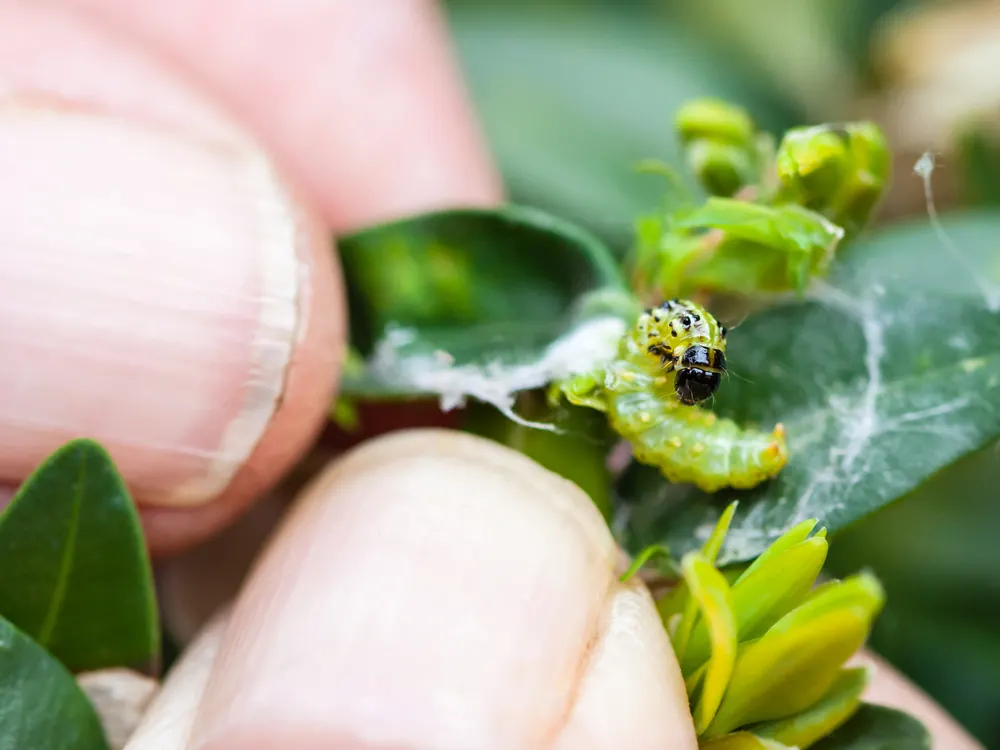
Sometimes, you can deal with a current, intense infestation simply by removing pests by hand.
While this can be a time-consuming and challenging business, it is still an option that you could consider before using an organic pesticide.
However, remember that eradication should not be your goal. Getting rid of a pest species can actually make problems worse long-term.
Without the pest species to prey on, numbers of predatory creatures can decrease.
This can cause a boom in the pest species population in future, as these creatures won’t be there to keep their numbers down.
Attracting and Protecting Beneficial Wildlife
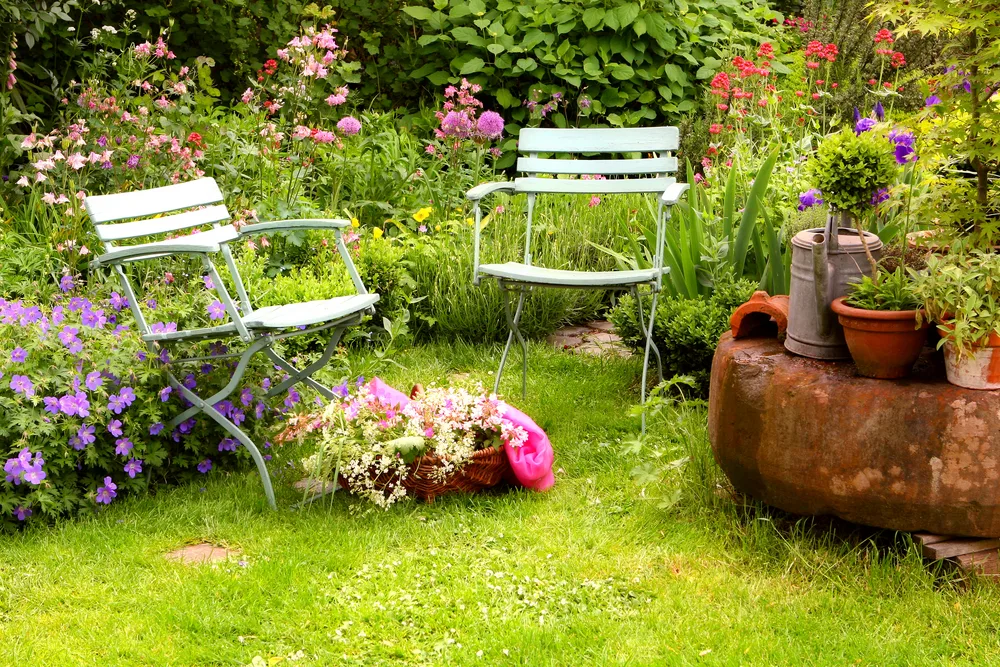
Rather than looking for a way to kill pests plaguing your plants, and using organic pesticides, it can often be better to think about how we can attract beneficial creatures that will help to keep their numbers down.
You can attract beneficial wildlife, and keep it in your garden, by planting the right things.
For example, if you have an aphid problem, planting to attract ladybugs and lacewings and other predatory insects can be the best idea.
You can also attract wildlife by creating and maintaining a range of different habitats, and leaving some wilder corners in your outside space.
Repelling Pests With Scents
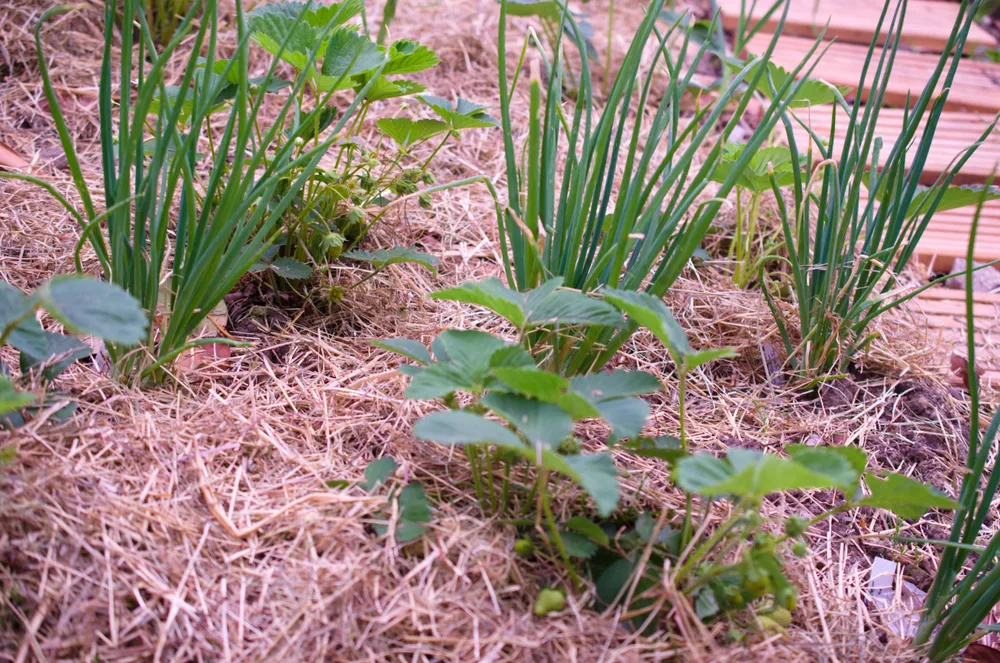
When working in an organic garden, it is important to distinguish between killing insects, and repelling or deterring them. The latter is generally a far better option.
Rather than using organic pesticides, you can repel pests with:
- Companion plants. (Garlic, for example, can not only be used to make insecticide. It can also be planted alongside other crops, where its smell can deter and repel a range of pest species.)
- Essential oil sprays. (As well as planting herbs and flowers as companion plants, you can also consider using essential oils (appropriately diluted) as insect repellent.)
For example, to repel cabbage looper caterpillars, add a few drops of rosemary essential oil to a spray bottle of water and spray it onto your cabbages or other crops.
Note – strong mixes of essential oils can be used as an insecticide to kill insects. But lower concentrations will work better in an organic garden as they will simply encourage insects to stay away.
If you use organic pesticides, do not think of them as a long term solution, merely as an ’emergency’ short term fix.
Think about a more holistic approach for a healthier and stronger organic garden.

Get the famous Rural Sprout newsletter delivered to your inbox.
Including Sunday musings from our editor, Tracey, as well as “What’s Up Wednesday” our roundup of what’s in season and new article updates and alerts.

